positively hopeful: climage crisis hotels
Lake Chad, Africa / Neumeyer, Antarctica / Kolkata, India
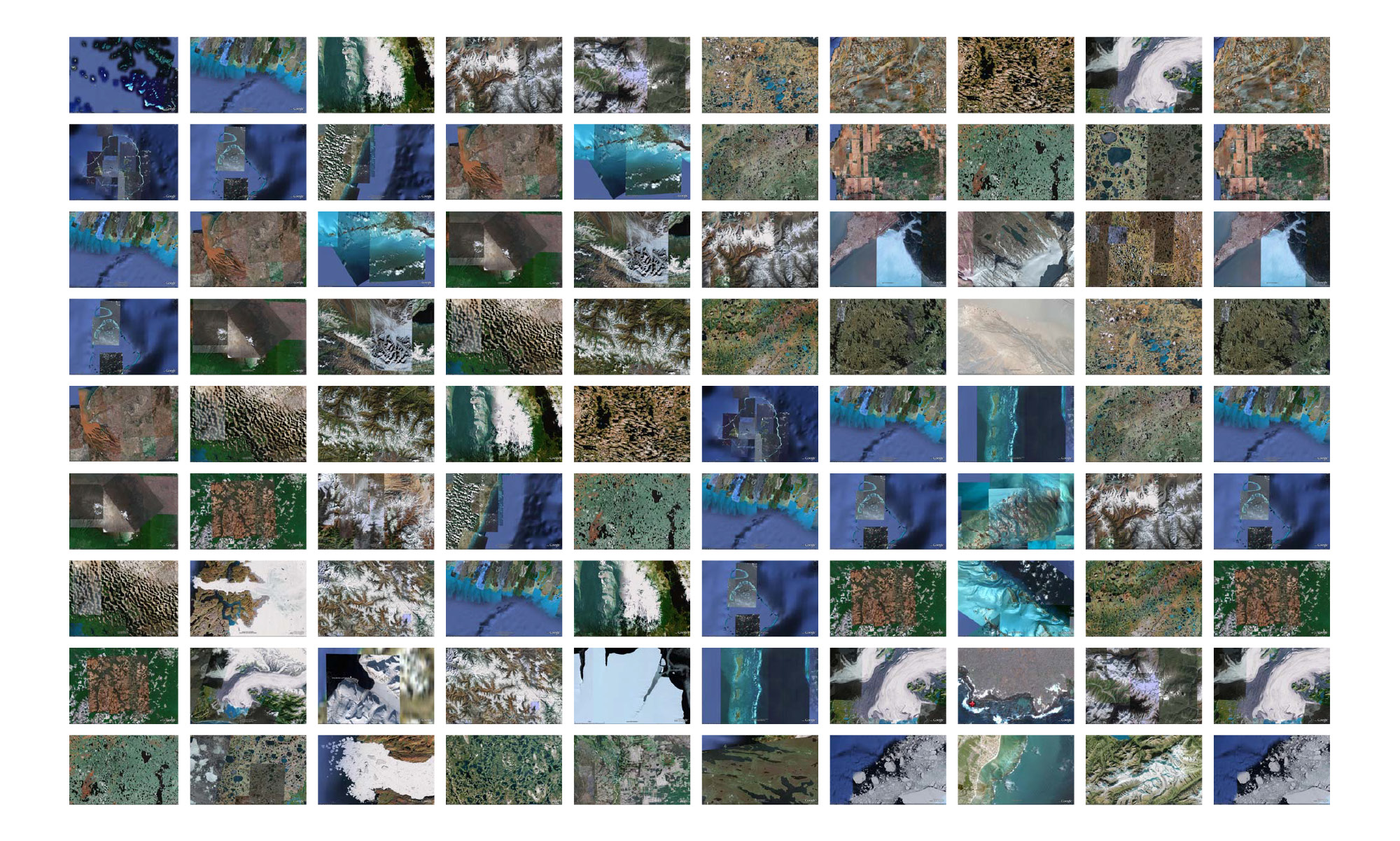



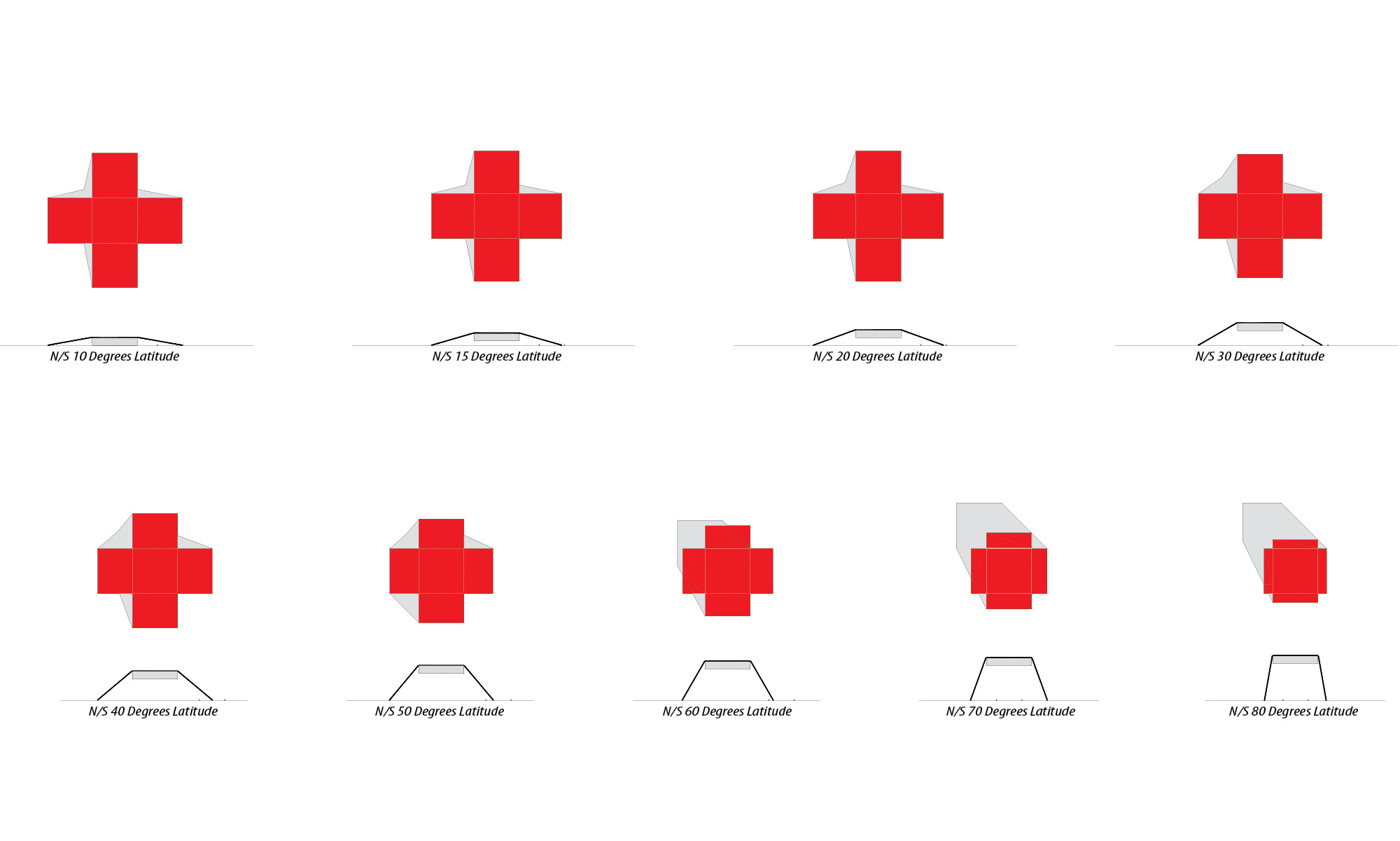







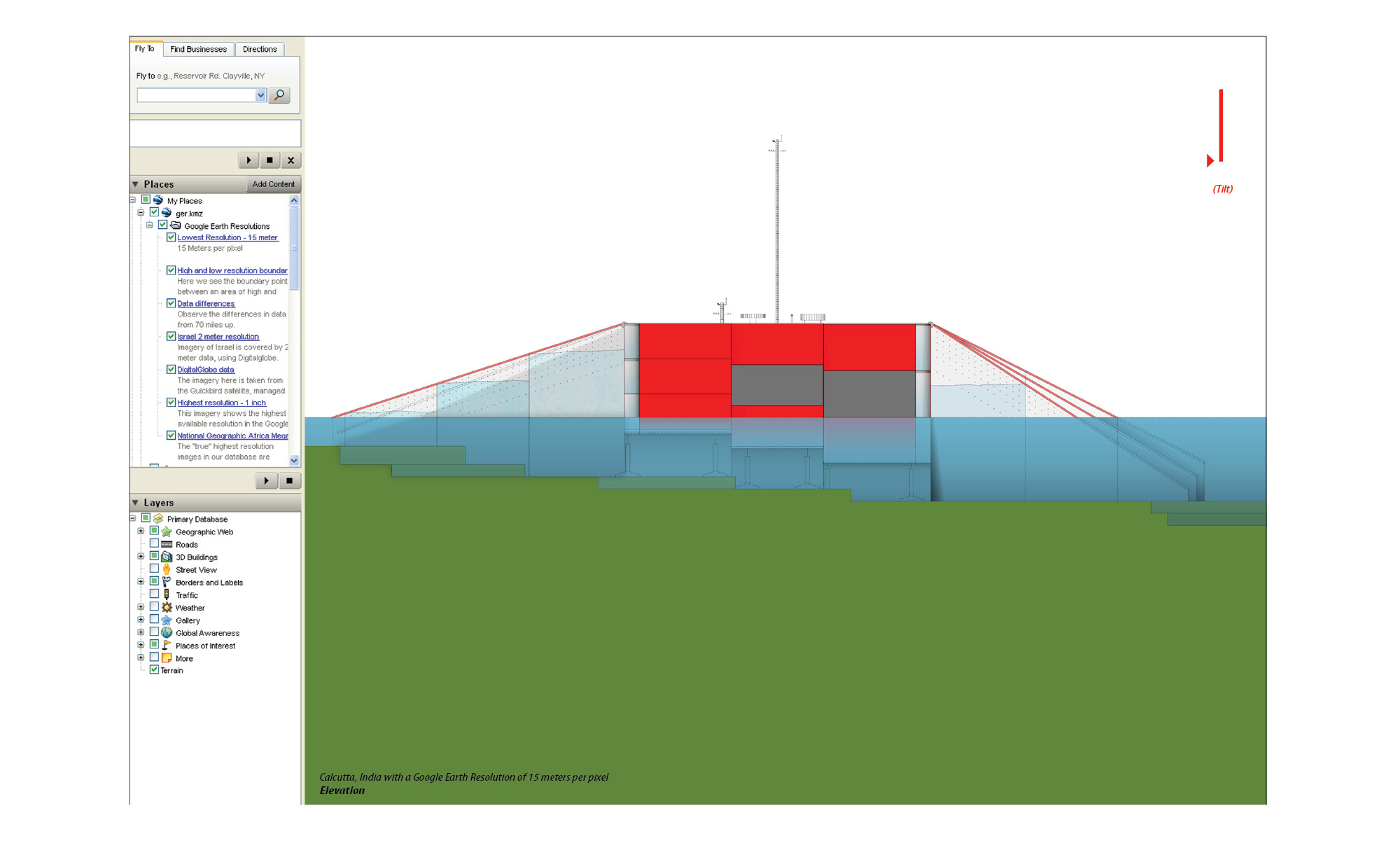

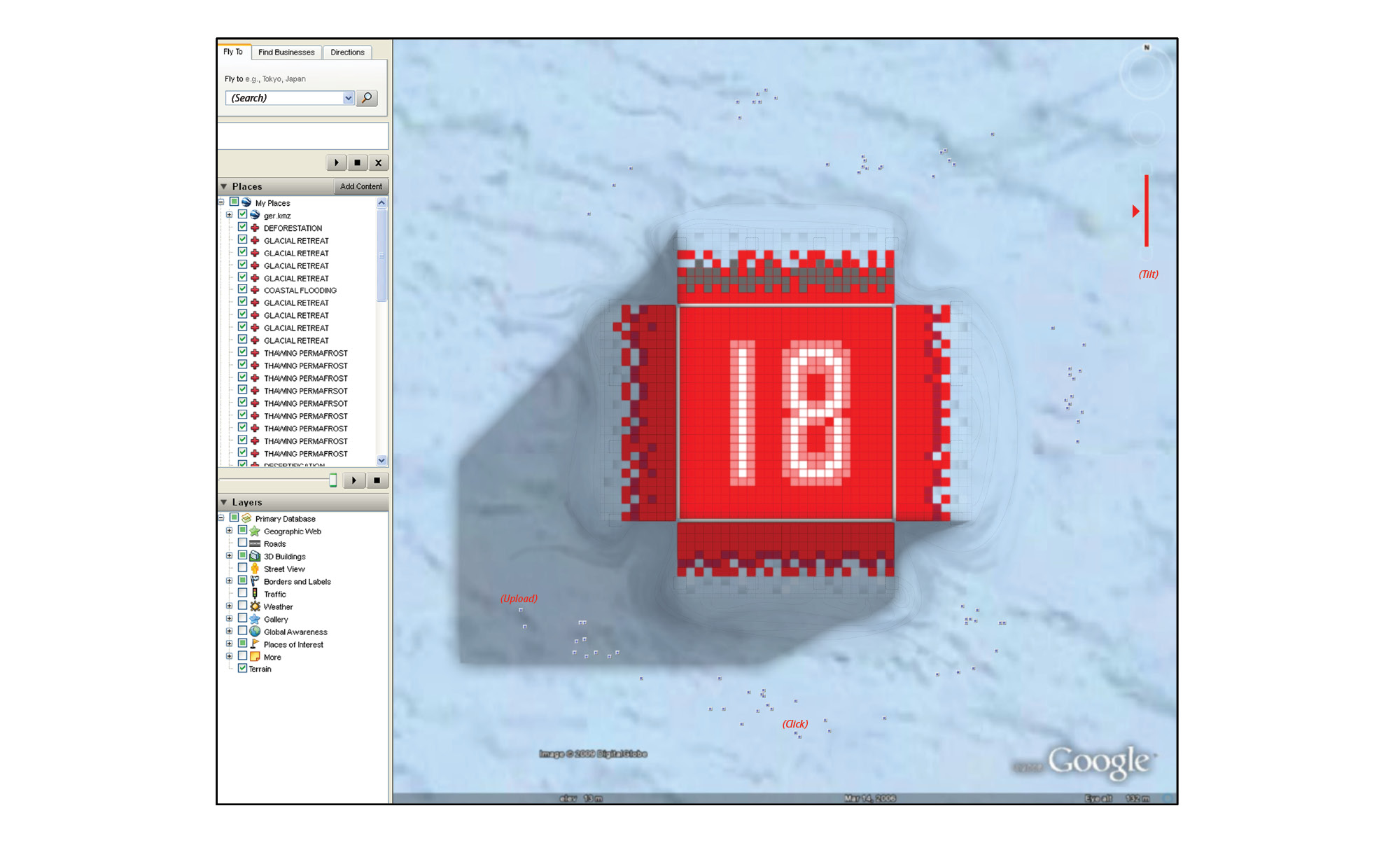





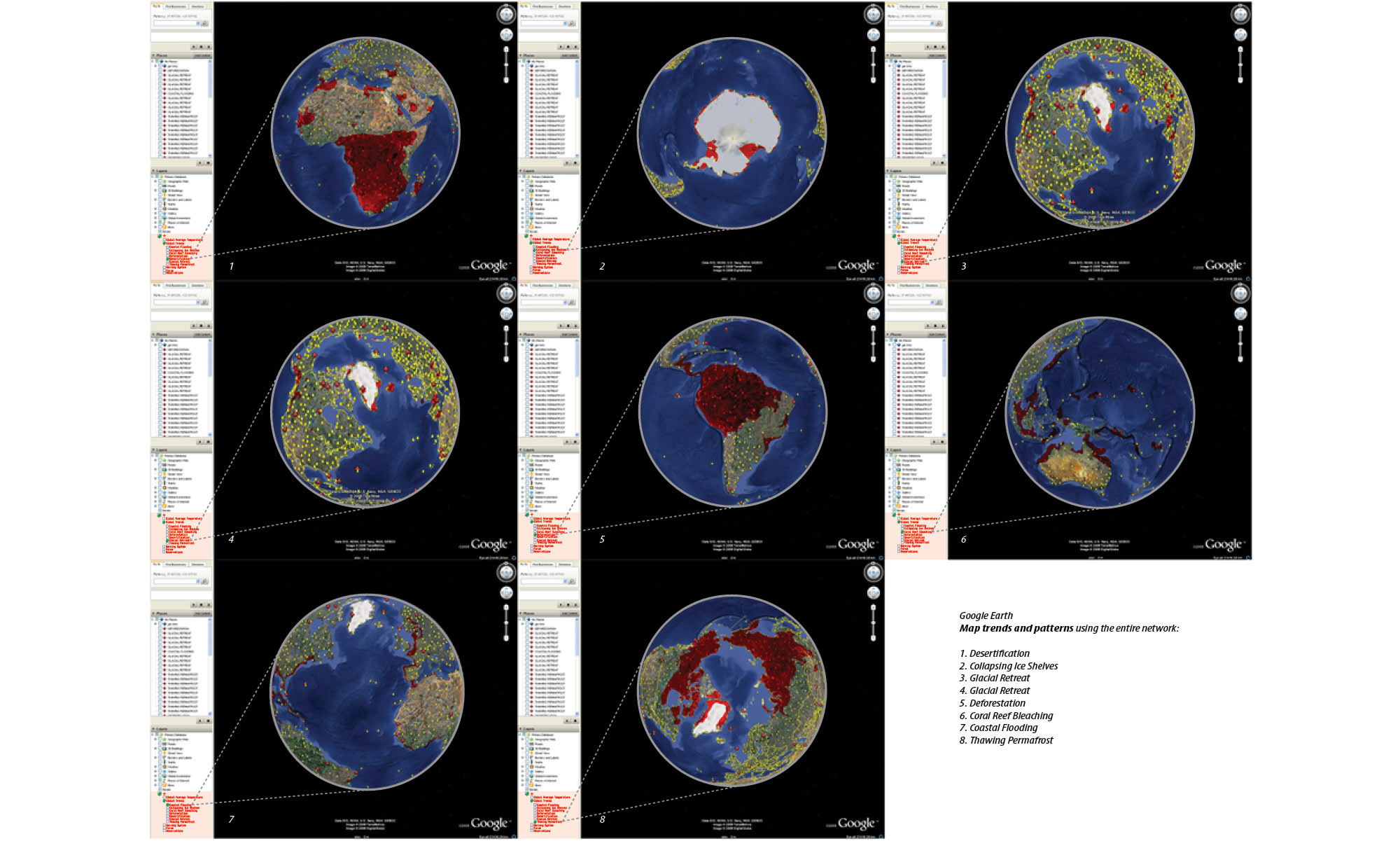

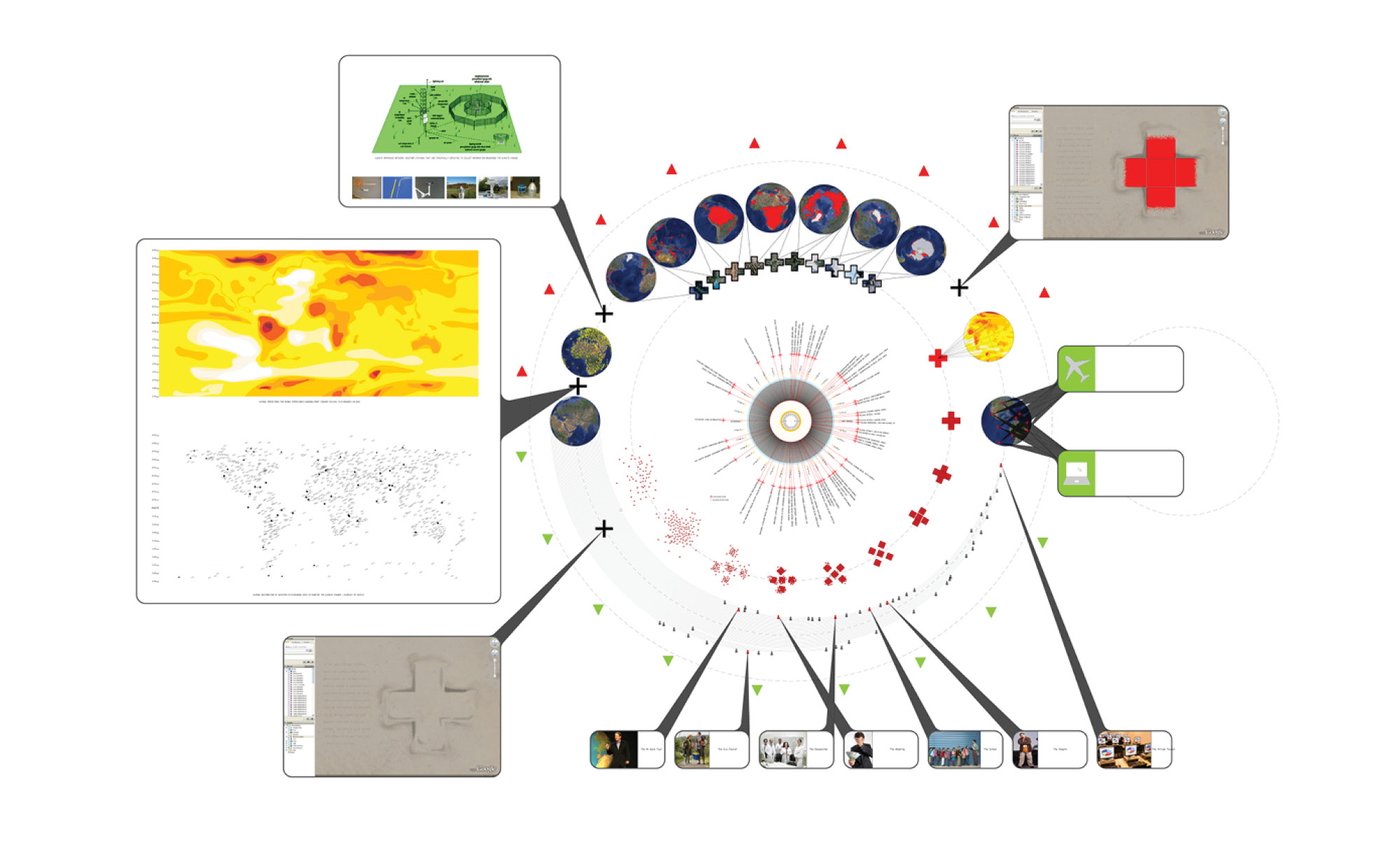
Global warming is the most pressing issue that is impacting all citizens of the world, transcending national boundaries. Scientists predict irreversible changes to our shared environment. Climate change requires a global response from citizens who are able to communicate and exchange ideas and information; it requires a response from all disciplines, all locations and all cultures. Global communications can strategically channel all efforts into a single hub, forging a collaborative environment defined by collective intelligence. Mitigating climate change necessarily depends on the awareness and involvement of a global public.
Monitoring the entire surface of the earth, Google Earth is an example of a global communications device that already allows every individual access to global information.
Google Earth will be our site plan and its icons our architecture. The red cross icon, the symbol of first aid, will mark the locations around the world where the impact of climate change is most palpable. It will also be the form of a global network of self-sustaining eco-friendly hotels deployed to those very sites. The hotels will harvests the natural resources available at each location while maintaining a minimal impact on the environment. Each hotel will also be fully operating weather station, expanding the existing network that is collecting data on climate change.
As more locations are devastated by global warming, the network of hotels will grow, as will the capacity to monitor the globe. The first 55 hotels allow guests to visit the very real impacts of climate change first hand. All locations can be accessed virtually as well, increasing the ability to share these experiences. Both experiences allow the public to use the network of hotels to identify and track global trends and patterns. The project also proposes to retrofit Google Earth with a forum, providing a space for a global public to discuss ways to battle the growing global problem. As more people become virtual and extreme tourists, the degree of awareness about the global issue will increase, inevitably reaching a tipping point where this new global public will actively engage in solutions. This will in effect decrease the devastation around the globe and reverse the problem, and naturally, the very need for this project. In this feedback loop, the more hotels that are initially deployed, the faster the project will undo itself.
